As world leaders gathered in New York this week for the annual United Nations assembly, a quiet war broke out in the Caucasus.
Azerbaijan started what it called an “anti-terror operation” to take control of Nagorno-Karabakh, an Armenian-populated enclave inside the borders of Azerbaijan. After 24 hours of the Azeri offensive, the Armenians of Nagorno-Karabakh gave in, signing onto a cease-fire deal and agreeing to “reintegration” with Azerbaijan.
This short war is certain to lead to an exodus of Karabakh Armenians from their homeland and may end up being the precursor of a new war between Armenia and Azerbaijan.
It is also one of the dangerous “knock-on effects” of the war in Ukraine, as Fiona Hill, my colleague and one of America’s preeminent Russia experts, often warns us about.
The Caucasus also shows the limits of Western power at Europe’s edges. The Biden administration and European policymakers have been working around the clock over the past week to avert this scenario and prevent Azerbaijan from embarking on an offensive that could lead to humanitarian catastrophe.
But the West seems increasingly helpless when it comes to Russia’s backyard.
The complicated map of self-governing enclaves and exclaves in the Caucasus is a legacy from the Soviet system that helped Moscow better divide and rule the empire’s backyard. Following the breakup of the Soviet Union, Armenians and Azeris fought over territory, resulting in Armenian victory and territorial gains in the 1990s.
But over the past decade, the power balance in the region has been reversed. Azerbaijan has risen as Armenia grew more isolated. Azeris have become an indispensable energy source for Europe since the start of the war in Ukraine and have built strong military ties with Israel and Turkey. Meanwhile, Armenia’s relations with its traditional benefactor, Russia, have deteriorated since the democratic revolution in 2018 that shook the pro-Russian oligarchy and brought Nikol Pashinyan, Armenia’s current leader, to power.
In 2020, the two neighbors fought a 44-day war that resulted in Azerbaijan reclaiming the land that it had lost in the 1990s. Now Baku is determined to assert its control over the last remaining bit of its territory, Nagorno-Karabakh, and dismantle the self-governing administration there.
Baku’s talk of “reintegration” doesn’t give comfort to Armenians or guarantee cultural and political rights for them. Azerbaijan can hardly be called a democracy, and over the decades, atrocities committed by both sides have created significant bad blood between Azeris and Armenians. The worry is that tensions around Karabakh will eventually result in a broader war between Armenia and Azerbaijan — which wants to open a land corridor to the Azeri enclave of Nakhchivan and eventually neighboring Turkey via Armenian territory (called the Zangezur Corridor by Azeris and Turks).
The question is, what can the United States do about it?
The short answer: not much, other than relying on diplomacy to push for a peace deal to prevent a new war between the two neighbors.
What restricts U.S. policy options is the fact that Russia is all over this map.
Armenia and Azerbaijan have historically looked to Moscow for arbitration. However, the geopolitics of the day favor oil-rich Azerbaijan, which has developed a strong military alliance with Turkey, under the slogan “one nation, two states,” and is essential for European energy — as EU member states try to wean themselves off of Russian fossil fuel exports.
Meanwhile, Armenia is estranged from Russia but has not built any meaningful institutional links with the West.
The West is a poisoned chalice for Armenians — a necessary savior but also a dangerous friend. Last week, the United States and Armenia held a joint military exercise — which did little to dissuade Azerbaijan. Ukraine is a cynical example of what Russia is willing to do to former Soviet states seeking security partnerships with the West. Russia, albeit weakened, is still bent on controlling its periphery. It won’t tolerate an Armenia that seeks U.S. support.
Russia also doesn’t want to see a pro-Western democracy in Armenia.
Since the 2020 war, Armenian public opinion has turned against Russia and there is no love lost between Pashinyan and Russian President Vladimir Putin. Russian peacekeepers were positioned in Nagorno-Karabakh in 2020 but they sat idly by this week. Moscow’s propaganda machine has been targeting Pashinyan for the last few years — and it’s clear that the Russians would not mind regime change in Yerevan resulting in a friendlier government. This would make Armenia another Georgia.
All of this complicates the U.S. role in ending the conflict in this important part of the world. The Biden administration doesn’t want to see the ethnic Armenians of Nagorno-Karabakh forced to flee, but it also doesn’t want to fully alienate Azerbaijan, which is strategically located between Turkey and Iran. It cannot make promises to Armenia that it cannot keep.
The best — and the only — solution is diplomacy: forcing Azeris and Armenians to come back to the negotiating table. The Biden administration should involve the United Nations and work with Europe to provide a framework to secure the livelihood and rights of ethnic Armenians in Nagorno-Karabakh. If the Armenians of the enclave gradually flee to Armenia, Western support and humanitarian aid will be critical.
More importantly, the United States and Europe should prevent a new war between Azerbaijan and Armenia. That requires a heavy lift to get the two sides to return to peace negotiations and delineate their borders. (The two signed a cease-fire in 2020 but never a comprehensive peace deal.)
Turkey, counterintuitive as it sounds, might be helpful in such a deal — and the United States should test that. Ankara has long wanted to see the restoration of regional trade routes and claims it is ready to normalize relations with Armenia. Turkish President Recep Tayyip Erdoğan has long fancied himself as an international mediator and, if he sees a global role here, he might be constructive in convincing Azeris. A Turkish offer to open its long-sealed border with Armenia would also lessen the blow for the government in Yerevan.
All of these are less-than-ideal options in a space where Western power has its limits. The rules-based order is breaking down and Russia’s war on Ukraine has further undermined the remaining international mechanisms to deal with aggression.
An ugly world has just gotten uglier, and countries are looking for opportunities to settle scores.
The United States or Europe cannot fully reverse this trend, but it can — and should — act to preserve bits and pieces of stability and democracy in Russia’s backyard.

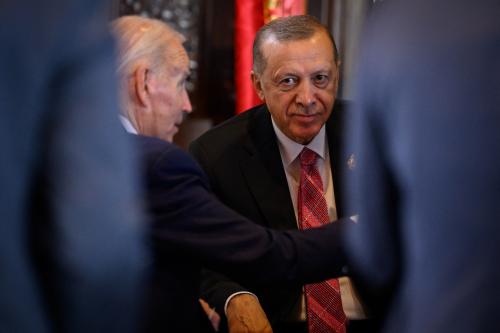
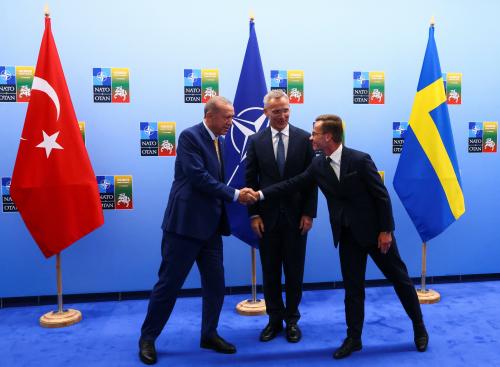
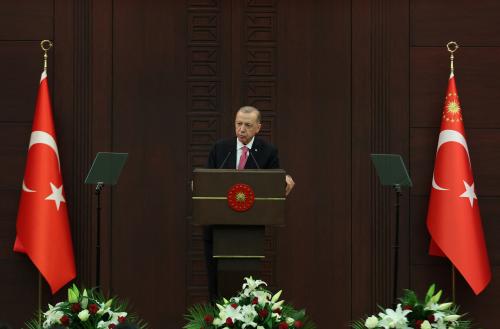
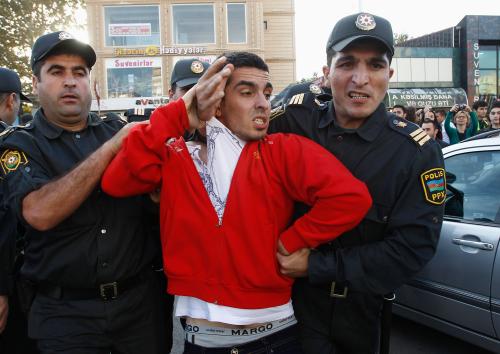
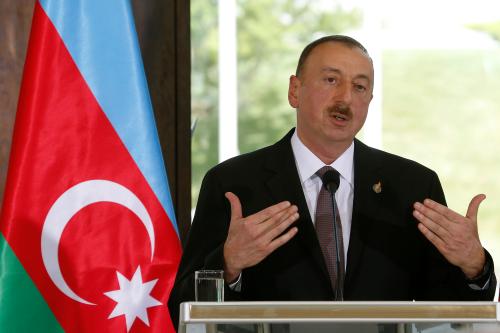
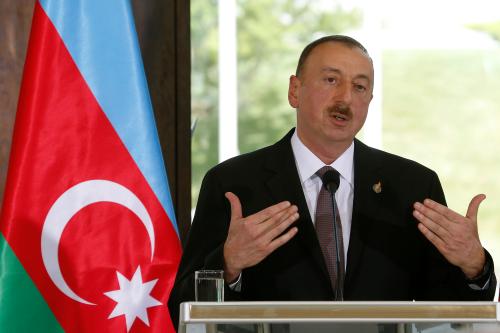
Commentary
A new Caucasus conflict tests the limits of US power
September 20, 2023